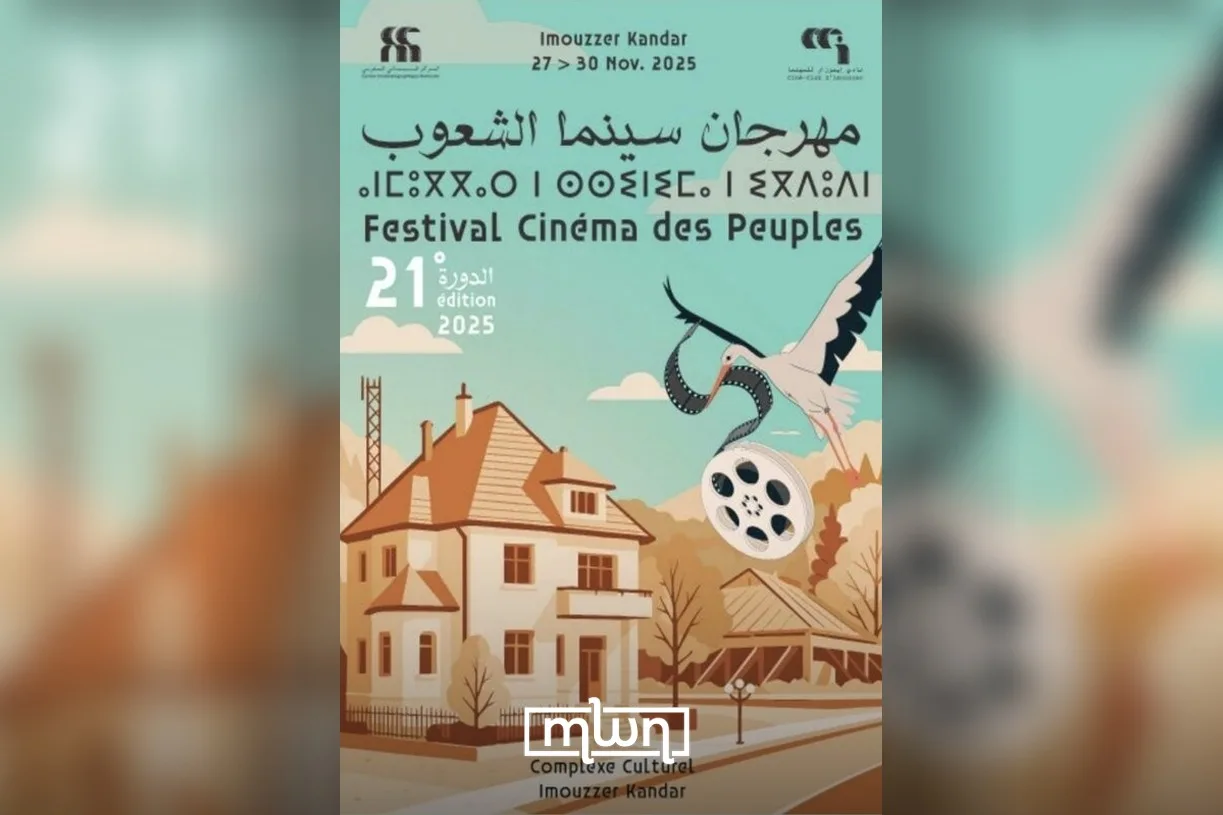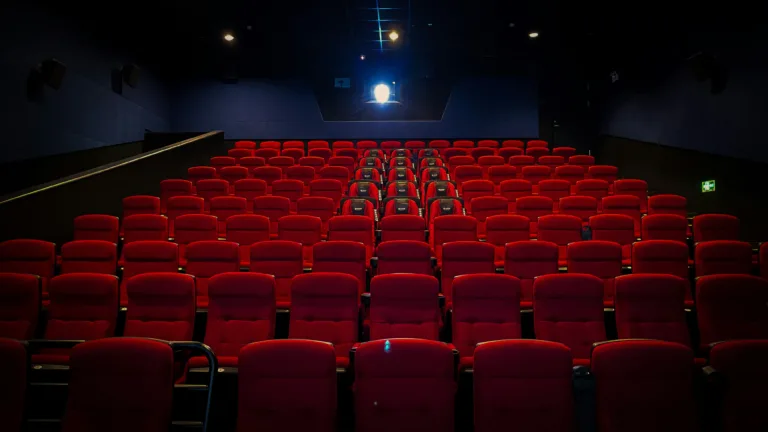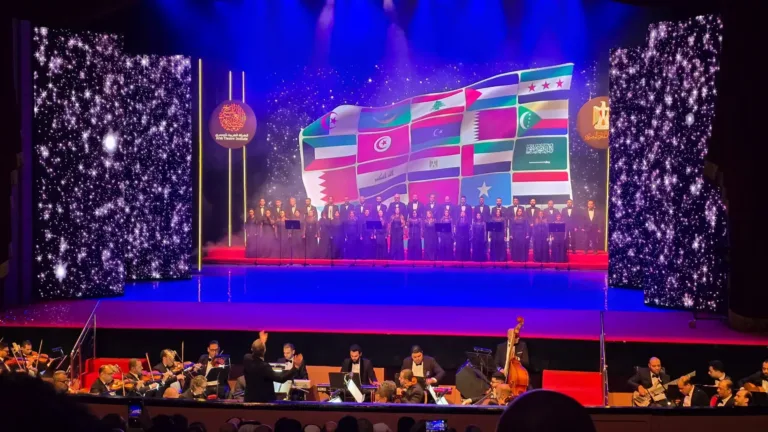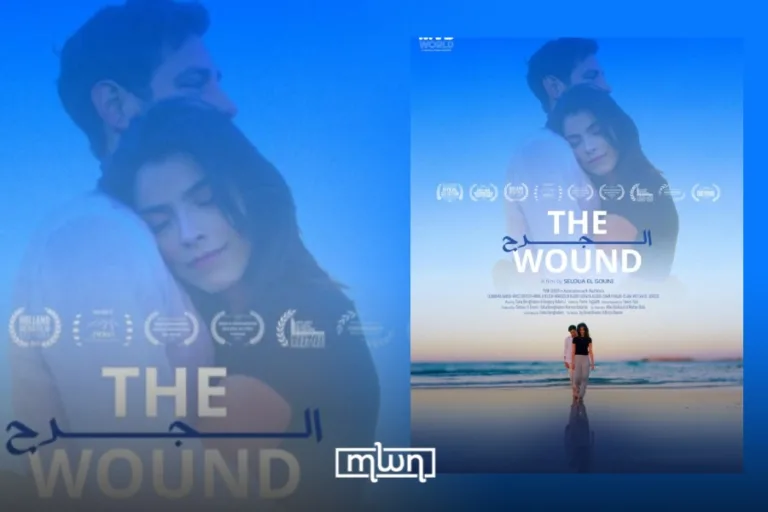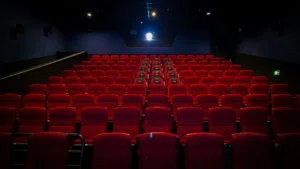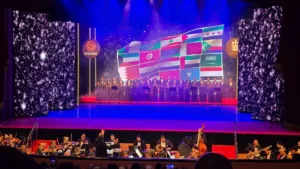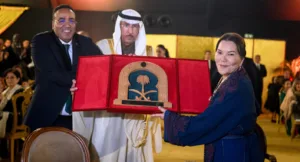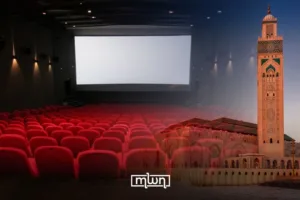Fez — The People’s Film Festival opens today with a program designed to spark dialogue on human and social issues through film.
Organizers confirmed a four-day schedule that blends premieres and retrospectives with skill-building sessions for students and emerging filmmakers. The event draws directors, artists, and cinephiles from Morocco and abroad to the Middle Atlas city.
The official opening pays tribute to artist Idriss Krimi before the curtain-raiser screening of “Sotto Voce” by Kamal Kamal. The choice sets a clear tone for the seventh edition, which places Moroccan storytelling at the heart of an international lineup.
Festival coordinators say the goal is to connect audiences with films that question identity, memory, and community, while giving young talent tools to advance their craft.
Friday’s calendar begins with “La création au cinéma: du scénario au tournage,” (“Creation in cinema: from script to shooting”) a practical workshop led by professor Hicham El Aidi at Lycée Mohammed VI. The session focuses on moving a script from page to set, with emphasis on story structure, casting, and directing actors.
Later that day, a colloquium titled “Le cinéma et l’oublié” (“The Cinema Is Forgotten”) brings scholars and practitioners together to examine how film records, and sometimes restores, neglected histories.
The night belongs to the shorts. Twelve films enter the international competition, including entries from Morocco, Egypt, Iraq, Syria, and Jordan. The names include “Henna” by Azzeddine El Ouardi, “Juste une petite poussée” (“Just a Little Push”) by Andrew Botros Saeed, and “Anggs (Collision)” by Ahmed Achkar. Jurors will weigh narrative clarity, visual language, and the works’ engagement with social themes that resonate across borders.
Programming continues Saturday with a second round of the “Le cinéma et l’oublié” colloquium, extending Friday’s debate with new case studies and audience questions. The day also features a book signing for “Créativité au cinéma: liberté et dimensions morales,” (“Creativity in Cinema: Liberty and Moral Dimensions”) the 16th publication of Ciné-Club Imouzzer. The volume gathers essays on ethics in creation and the responsibilities artists assume when they work from lived experience.
Saturday evening shifts back to the big screen with “Jalaldine” by Hassan Benjelloun, a feature that adds a seasoned Moroccan voice to the weekend narrative. The closing awards ceremony will follow to honor the short-film laureates and recognize standout contributions across the program. Prizes aim to elevate new names while encouraging continued collaboration among regional crews.
The festival wraps up on Sunday with a Book Fair organized by Ciné-Club Imouzzer, starting at 10 a.m. The fair brings publishers, critics, and readers into the same space to exchange ideas and resources, from screenwriting manuals to monographs on Arab and African cinema. It also offers students a path to mentorship, with panelists available for portfolio reviews and project advice.
Across four days, the People’s Film Festival positions Ifrane as a meeting point for craft and conscience. The mix of training, debate, and discovery underscores a simple idea: films are not only stories on screen, but they are tools communities use to remember, to question, and to imagine what comes next.

